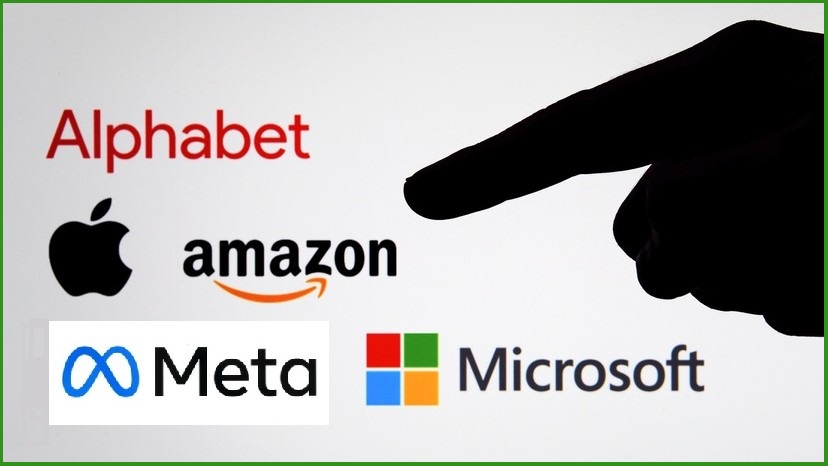Survey ‘overdue’ to gauge Big Tech’s market dominance | information age
Big Tech is under the microscope. Photo: Shutterstock
Years after the launch of the Digital Platform Services Survey (DPSI), so-called Big Tech companies are coming under greater scrutiny after the Senate announced a second investigation into their market share, the customer manipulation, vertical integration and the use of proprietary algorithms.
The Standing Senate Committees on the Economy Influence of international digital platforms The survey was tasked with exploring the extent to which large multinational technology companies – Meta, Google, Microsoft, Apple, Amazon and others are implied but not explicitly named – “exercise power and influence in markets and the public debate, to the detriment of Australia”. democracy and users”, Terms of reference Remark.
This includes exploring their market share in providing hardware and software services; their use of vertical integration – the linking of multiple services, products and hardware – as a means of limiting the ability of users “to exercise choice”; and how concentrated market power affects competition, macroeconomic performance, and consumer outcomes.
The survey will explore the transparency of proprietary algorithms used by companies and the extent to which they “manipulate users and user responses, and contribute to greater concentrations of market power” – with an eye to how Stricter regulations could “lead to better outcomes in the public interest”.
The wide-ranging investigation will also explore how Big Tech companies collect and process children’s data for profiling, behavioral advertising or other uses, as well as assessing the effectiveness of recent attempts to regulation of international digital platforms.
Taking stock of the impact of Big Tech companies on the market is “overdue”, NSW Senator Andrew Bragg said when announcing the new survey, noting that “major tech platforms have amassed more more power than any other company in recent history”.
The big five Big Tech platforms, he added, “have more power than the railroads and oil tycoons of the golden age…. The Australian Parliament needs to form a firmer view of what the enormous concentration of power…means for our country.
“We need to have the policy settings in place to protect users and ensure Australians are not taken advantage of by the most powerful corporations in history,” he said, adding that Big Tech platforms “can and must to be our partners in protecting Australians and our interests”.
DPI revisited?
The new survey reflects the growing global concern that Big Tech companies have accumulated too much power and, through the interconnection of complementary services, have created entire ecosystems that capture, analyze and use consumer data at scale.
The US Congress, for example, has assessed law Project as the Digital Platforms Commission Act 2022that would establish a five-person federal agency providing “reasonable oversight and regulation of digital platforms.”
These platforms, lawmakers warned, “have benefited from the combination of economies of scale, network effects and unique characteristics of the digital marketplace to gain vast power over the economy, society and democracy of states. -United”.
“Digital platforms remain largely unregulated and must write their own rules without meaningful democratic input or accountability.”
Australia’s Parliament has also looked into Big Tech’s market power, with the prosecution PPP launched in 2020 to probe areas such as social media, advertising services and other aspects of a hugely heavy digital services market that is currently run by a “dog breakfast” of regulations.
This investigation has delivered its fifth interim report in September, and is expected to run through 2025 alongside the new Big Tech inquiry – which is currently accepting submissions and delivering its final report on the last parliamentary sitting day of 2023.
Last year another investigation focused on the online harms of social media, while earlier this year a series of Australian agencies joined forces to improve scrutiny of Big Tech companies amid claims that competition on social media is actually on the rise.


Comments are closed.